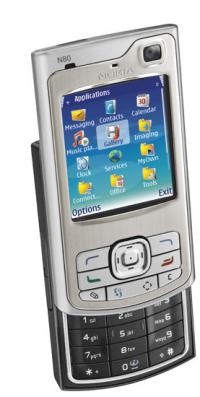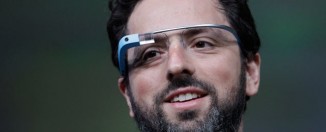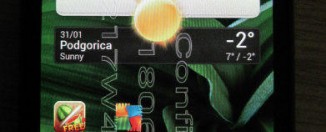Will Nokia’s next competitor be Dell?

Nokia have taken to calling their latest N-Series mobile phones “multimedia computers”, and have reportedly forbidden their employees from using the word ‘phone’ at all.
Rather than just being a marketing gimmick though, it underlines how Nokia sees the future of its mobile phones (sorry, multimedia computers) developing.
Specifically, they see the mobile phone as the single gadget you’ll need for every form of communication, information and entertainment. They want the mobile phone (and more importantly, their mobile phones) to be your one and only access to the Internet, relegating the computer to a behind the scenes role that may only exist in servers in years to come.
Nokia’s vision of the future

At Nokia’s HQ in Espoo, Finland, they already have mobile phones interacting with TVs and phones that let you listen to and interact with local radio stations. Better still, the phone really does act as a multimedia computer, letting you view photos on a TV and listen to music stored on the phone without ever having to touch the phone itself.
But that’s today. Fast forward a few years to when all handsets offer these features, and an interesting question presents itself: what use do you have for a personal computer?
The Nokia N80 – Nokia’s first multimedia computer

Nokia’s aim is for the mobile phone to become a multimedia hub, taking commands from the user and directing them to the appropriate device for display or execution. Already this technology is bearing fruit.
The Nokia N80 exploits new UPnP (Universal Plug and Play) technology to tap into the digital home network, acting almost as a remote control, enabling secure and convenient access to compatible PCs, audio equipment and TVs.
Consequently, images and video stored on the Nokia N80 or a compatible PC can be viewed wirelessly on the living room TV, while listening to music stored on the device through the living room audio system. It also lets you print wirelessly to any compatible UPnP-enabled home printer or printing kiosk. It’s only a small step from the Nokia N80 to a device that renders the PC obsolete.
Replacing the PC with a Nokia and Web 2.0
The N80 can’t replace a PC, of course. Firstly, it needs a PC for storing files and streaming them to your hifi or TV; and secondly, you still need to use a PC for browsing the web, writing documents (be they email or letters), and other small office-like activities. But files can be stored on remote servers, and it’s not difficult to adapt the N80’s technology to send a command to a remote file server to stream your content from somewhere on the Internet, rather than from your home PC. The only difference is where the file server is located.
More interestingly, the applications we use on our PC are also slowly being pushed onto the server using web-based applications currently riding at the edge of Web 2.0 technology. (For those not in the know, Web 2.0 is a series of technologies aimed at turning the web into an application platform; rather than using a PC-based client application, such as Word, you get the same features from a web server-based application, such as AjaxWrite.)
Shifting processing from the client to the server
Most of the processing for these tasks resides at the server, leaving the client PC acting as just an expensive web browser. If you hook up a monitor and wireless keyboard to a suitably-equipped mobile phone, you have no need for a PC:
- all your files are stored remotely;
- your web browser resides on your mobile phone, but is displayed on your monitor;
- and all the applications you currently use reside on a web server, again accessible through the web browser from your mobile phone.
Indeed, you won’t even notice you’re not using a PC, as you still use a keyboard and monitor, and all interactivity occurs through a browser, just as most of it does now.
As Web 2.0 shifts the processing demands of applications from the client to the server, and with mobile phone processing power increasing dramatically, the time will come very soon when all the computational demands of the user can be met by the mobile phone. Rather than having a large, bulky PC sitting in your spare room eating up electricity and acting as a large file server, it makes much more sense to have one take-anywhere device that effectively choreographs your multimedia needs between devices while providing instant Internet access.
Nokia competing directly with Dell
This vision will take time to achieve, but think about how you currently use your PC, and you should see that it’s inevitable. And with fewer people needing a PC, Dell will suddenly find itself with fewer customers.
Just as digital cameras completely demolished the traditional film-based camera market, so Dell may see its own market start to evaporate at an ever-increasing rate. And if Nokia has anything to do with it, this is exactly the future Dell and the other computer manufacturers can expect.
[Source:Seattle Times]







